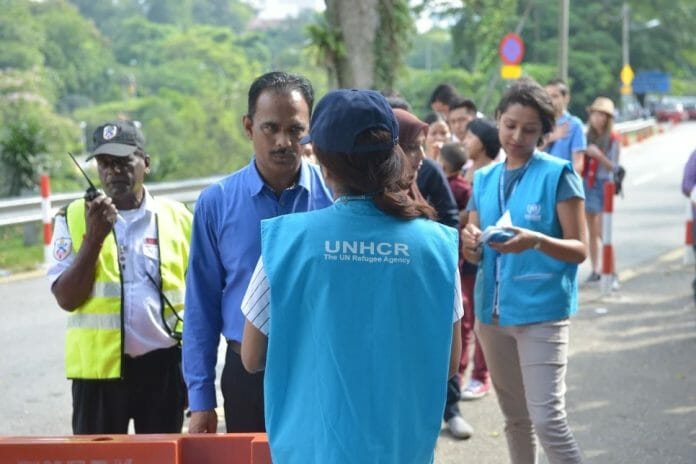There are founded concerns about Malaysia’s intention to shut the local UN High Commission for Refugees office, this comes as the Home Affairs Minister Datuk Seri Hamzah Zainuddin commented on needing the Commission to oversee the country’s handling of refugees as the Ministry has its own methods in managing the situation.
According to the Institute for Democracy and Economic Affairs (IDEAS), the Prime Minister’s Department (Special Functions) Datuk Dr Abdul Latiff Ahmad reason to shut down the local UNHCR says greater priority must be given to ensuring that a legal framework governing and protecting the rights of refugees and asylum-seekers is in place before considering any transition plans.
As Malaysia is not a signatory to the 1951 United Nations Refugee Convention and its 1967 Protocol, UNHCR has long been the main actor in safeguarding refugees and asylum-seekers in Malaysia by providing a broad spectrum of protection such as refugee status determination and resettlement. The agency also works with various non-governmental organisations to provide assistance in the areas of healthcare, education, financial assistance, shelter, counseling, and other welfare needs.
Given the longstanding role of UNHCR in refugee and asylum-seeker management, IDEAS expressed concerns regarding the readiness of the government to take over this role, especially in the absence of a legal and institutional framework that governs and protects refugees and asylum-seekers. “For the government to demonstrate its commitment and readiness to take over refugee and asylum-seeker management, it has to first and foremost ratify the 1951 Refugee Convention or establish an alternative domestic policy and legal framework that aligns with the regulatory and protection components of the Convention to ensure that Malaysia complies to international standards.” said Dr Tricia Yeoh, Chief Executive of IDEAS. “Without such a framework, refugees will continue to be excluded from economic opportunities as well as fundamental rights to education and healthcare. More importantly, as a member of the United Nation Human Rights Council, the country has a duty to uphold human rights in line with international standards and to prioritise the rights of vulnerable groups, including refugees and asylum-seekers.”
Adding to the comments, Dr Juita Mohamad, Director of Research said “there is a need for an in-depth assessment of the government’s readiness and the ability to manage and resource the operations at international standards, should the transition take place,”.
Despite not being a party to the 1951 Refugee Convention, let’s be reminded Malaysia is still bound by the principle of non-refoulement, which is a fundamental principle of customary international law. Under the rule of non-refoulement, a state is prohibited from rejecting or returning refugees and asylum-seekers to a territory that will expose the person to risk of persecution, torture, or inhumane treatment or degradation, or to threat to life, physical integrity, and freedom.









